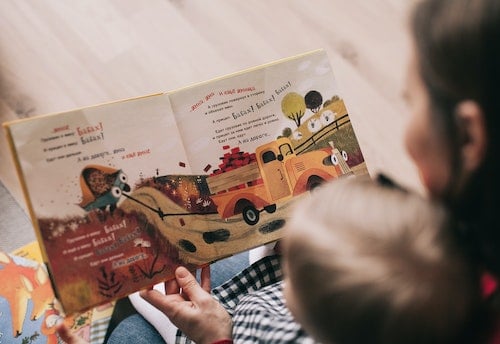The Amazing Benefits of Being a Bilingual Parent
Very often, bilingual parents worry that having two languages at home will confuse their children or even lead to a speech delay. However, experts believe that if you follow a consistent strategy to promote bilingualism during your child’s early years, the benefits of being a bilingual parent will outnumber the difficulties by a big margin.
Table of Contents
→Sign Up Now: Free Trial Language Lessons With Native Teachers!←
In this article, we will delve into the main benefits of being a bilingual parent in the hope that every parent who’s reading will make the choice to promote bilingualism in their household.
But first, let’s take a look at how you can do it.
How to Support Bilingualism in Early Childhood: Three Strategies
There are many ways of supporting bilingualism within a household. While it is always advisable to consult with an expert on which one will work better for your family, here are three ways that it is worth trying out.
- One person, one language: This approach is very commonly used in households in which each parent speaks a different language. For example, if your native language is English and your spouse’s first language is Spanish, you may each provide instruction and feedback to your child only in your mother tongue. This strategy (aside from reducing parental stress!) has proven to help children remember vocabulary and grammar rules better, thus preventing them from mixing up the two languages.
- One language at home, one language at school: If you and your partner are in the process of becoming bilingual yourselves —or just prefer to stick to one language at home— you can let the professionals do the job and send them to bilingual educational institutions starting at kindergarten age. Learning a second language from such an early age will ensure that they reach native-like fluency during their teens, which will be very useful for their personal and professional life in the future!
- Alternating languages: Better suited for a child who has already learned their first language, this strategy consists in speaking to your son or daughter in a different language each day of the week. For example, you may alternate between English and German, and have specific days for each language. This is a perfect strategy for parents who like to keep things playful, but it is also very beneficial, as it increases the exposure to ‘Language 2’ and promotes awareness of how meanings are expressed differently in both languages.

Benefits of Being a Bilingual Parent
Now that you know how you can raise a bilingual child, let’s take a look at how being bilingual can help you be a better parent.
1. Better Opportunities for Your Children
In today’s globalised world, the importance of bilingualism cannot be overstated. By raising your children bilingual, you’re giving them a major advantage in terms of future opportunities. On the one hand, bilingualism is an increasingly valuable skill in today’s workplace. As many jobs now require employees who can cope in a multicultural workplace, being bilingual gives your child a significant advantage in the job market.
On the other hand, bilingual children have greater cognitive flexibility, creativity, and problem-solving skills, which means that bilingual children are better equipped to deal with the challenges of a rapidly changing world.
2. Bilingual Parents Are More Understanding
Bilingualism helps to break down barriers between people and cultures because it allows us to see the world from multiple perspectives and to better understand and appreciate other ways of life.
But it’s not just children that enjoy this particular benefit of becoming bilingual. Parents who speak more than one language —especially those who feel a strong connection towards the cultures linked to these languages— make great mothers and fathers because they have increased empathy for other ways of understanding the world. This, as you can imagine, comes in very handy when you decide to have children in such a rapidly fluctuating society.
As it becomes harder to predict how children or teenagers will communicate and behave in a few years, we —as parents— should aim to keep our minds as open as possible to different forms of expression and different ways of interpreting the reality around us.

3. Bilingualism Promotes Communication Within the Family
One of the most important benefits of being a bilingual parent is that you feel more confident about communicating and connecting with extended family members and people who speak your heritage language.
Instead of telling your children about your parents’ or grandparents’ language and culture you can provide opportunities for your children to have meaningful interactions in this language and get to know the culture embedded in it.
This way, bilingualism can help to keep families close-knit, and it can also be a valuable tool for preserving tradition. As a bilingual parent, you’ll be able to share your language and culture with your children in a way that monolingual parents can’t. This is a valuable gift that will enrich your children’s lives and help them to develop a strong sense of identity.
To sum up, the benefits of being a bilingual parent and raising bilingual children are manifold. Bilingualism provides opportunities for increased job prospects, improved cognitive skills, and enhanced mutual understanding while helping us break down cultural barriers.
If you’re considering raising bilingual children, rest assured that you’re making a decision that will improve their reality in many ways throughout their lives.
Would you like to experience the benefits of being a bilingual parent? You’ve come to the right place. At Listen & Learn, we provide personalised language lessons designed to fit our clients’ preferences and learning goals. Whether you’re looking for a traditional course that will improve your grammar and reading abilities or just want someone to practice your speaking skills through genuine conversation, we’ll make sure that you get exactly what you need.
→Sign Up Now: Free Trial Language Lessons With Native Teachers!←
Send us a message now and we’ll pair you up with a native teacher of whatever language you want to learn or practice for a free trial online lesson!


